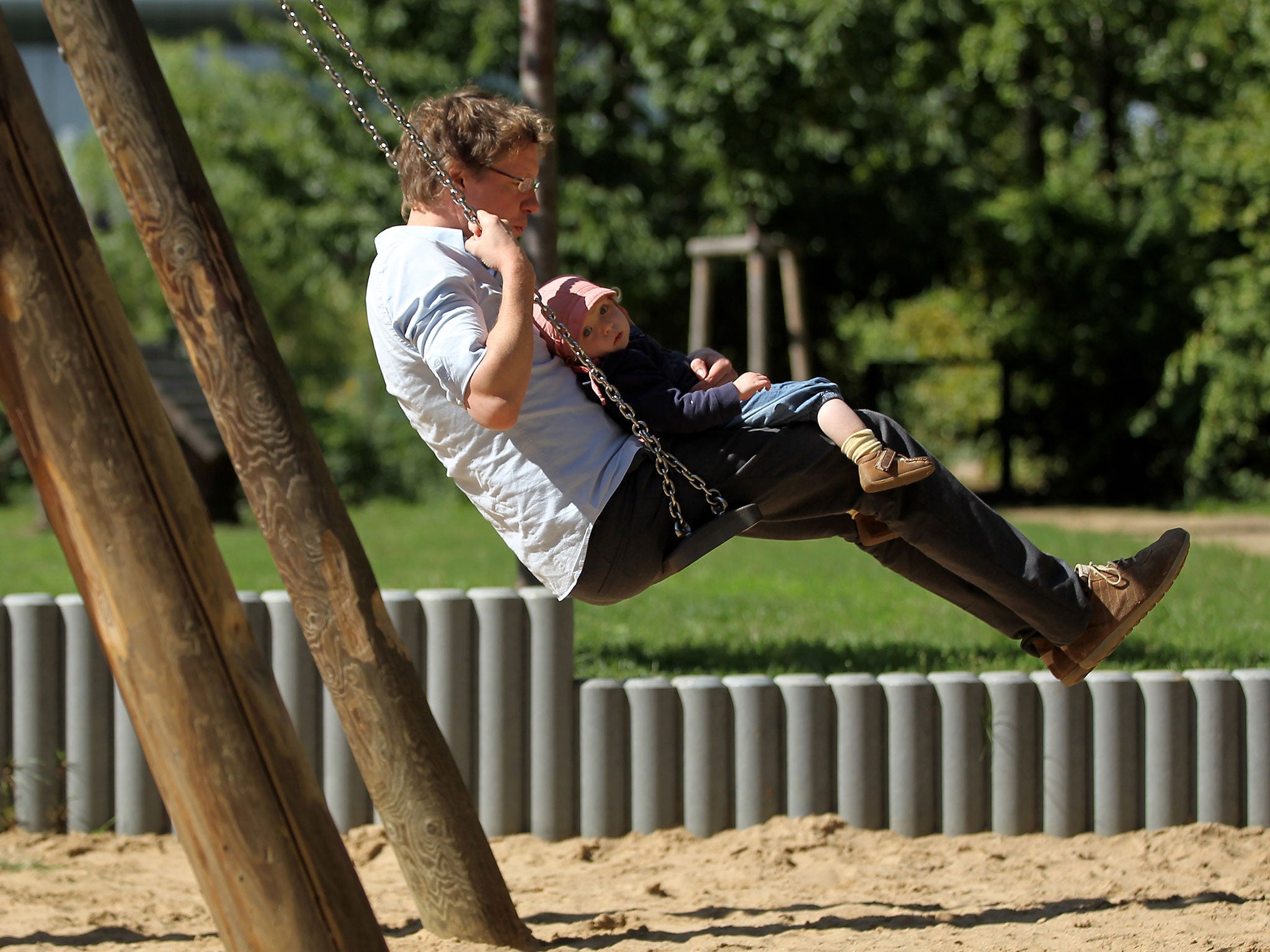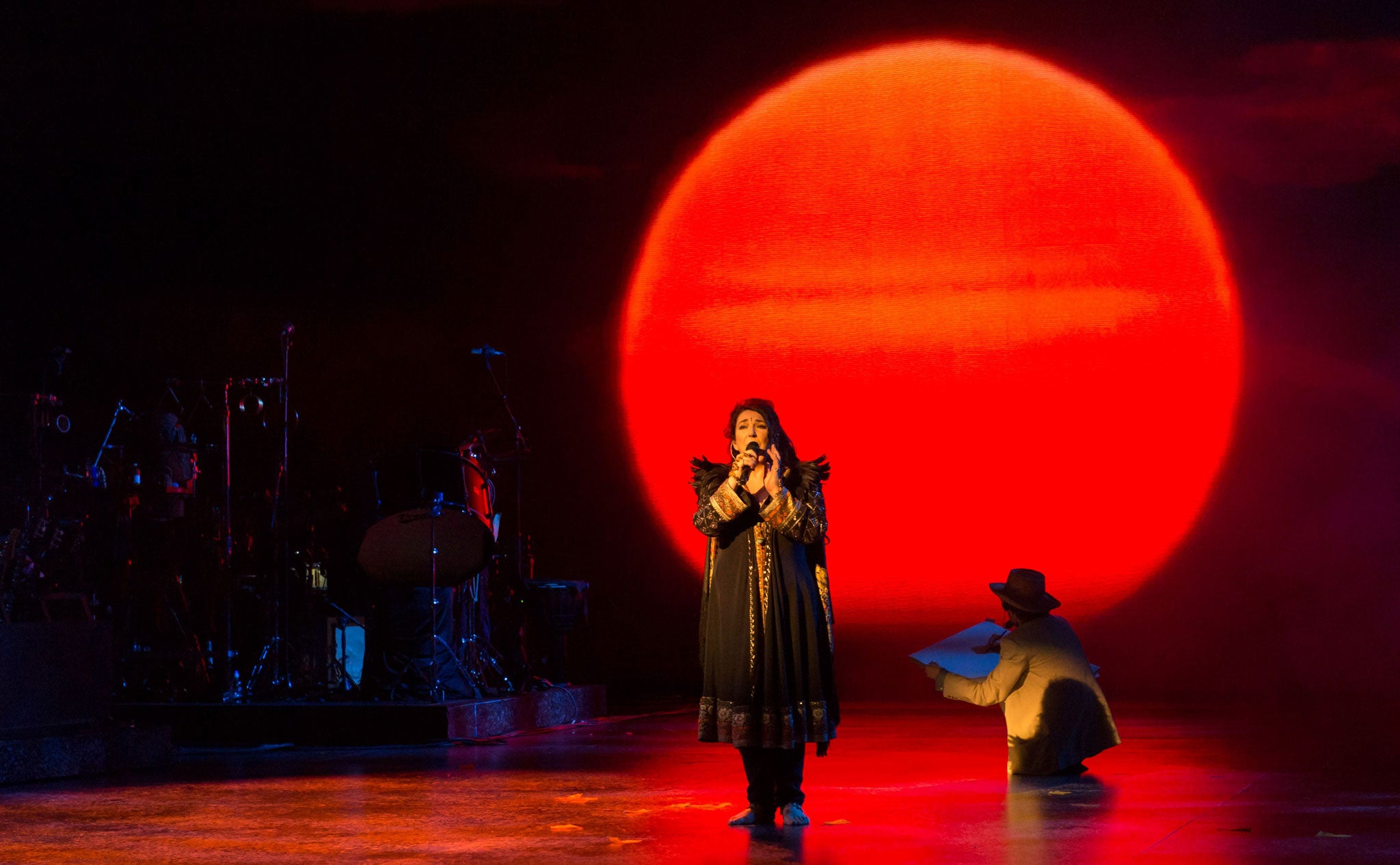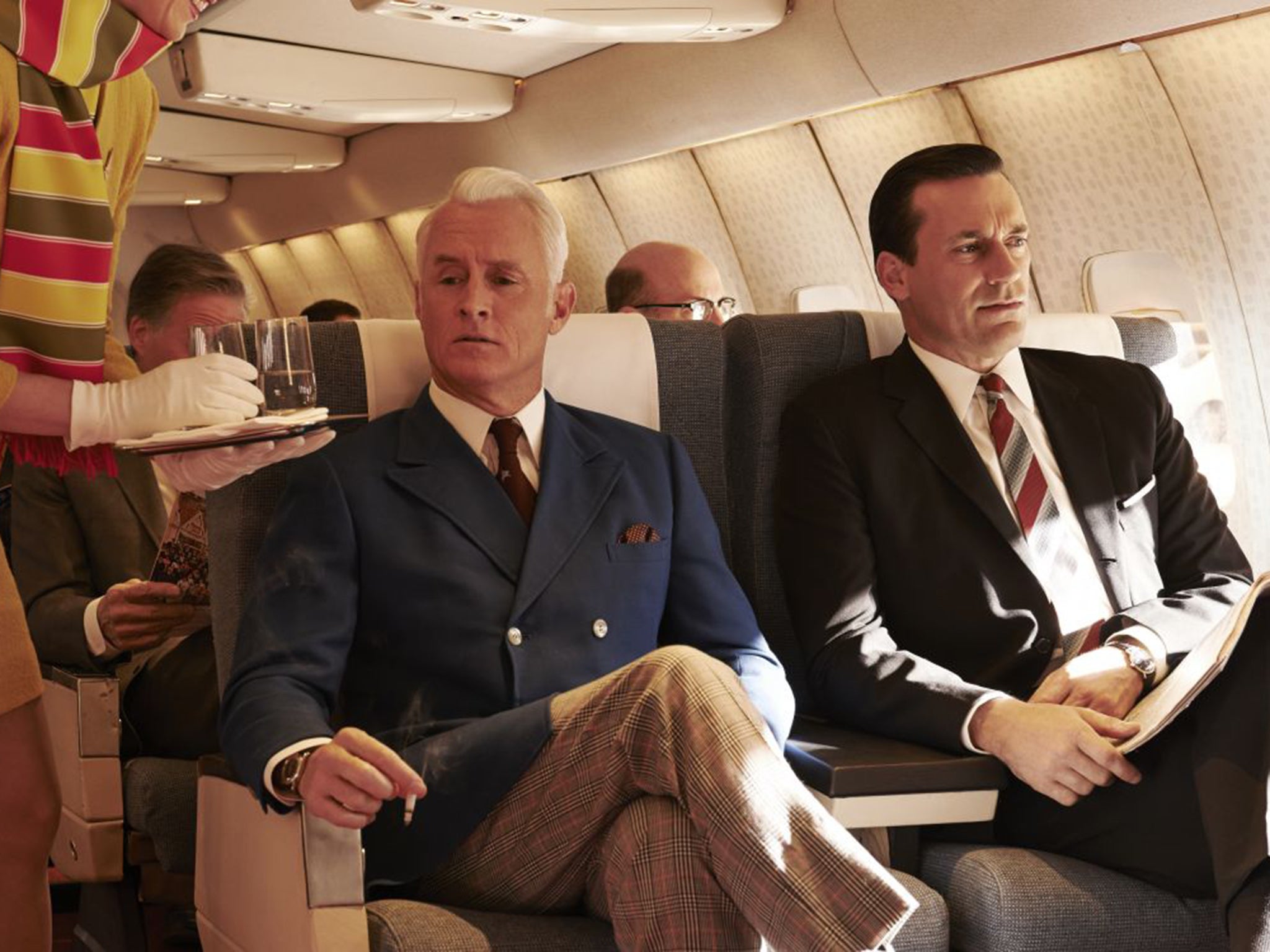Who can afford equality? Share the parental burden if you can
With statutory parental pay so low and women still earning less than men on average, SPL becomes an unaffordable luxury

This day in history, 5 April 2015, marks the dawning of a new era in gender equality. Can you feel it in your uterus? Parents of babies born from today onwards are entitled to share their 50 weeks of parental leave between them, as they see fit. That might mean three weeks of antenatal yoga for Mum here, two months of baby sign language for Dad there, perhaps with a few days of jointly pushing the pram around the park to finish off. Nick Clegg has said that shared parental leave (SPL) will help us to “move away from outdated assumptions about the role of fathers”, but is he right?
As a woman who is a) pregnant and b) not much fond of sharing, I have my doubts. After carrying a baby for nine months, going through labour and several other gruesome indignities (I’ll spare you the details), surely I’m the one who’s due some months of recovery and baby-bonding. But then, it’s not just about what I want – it’s also about what’s best for the baby, for the father, for women in general and for society as a whole. Now that I’m a beatific, selfless mother-to-be, I’m starting to understand.
In any case, personal misgivings about SPL are easily overcome compared with the big financial obstacle. With statutory parental pay so low (£138 per week, compared with the £260-per-week minimum wage) and women still earning less than men on average, sharing leave (or taking any sort of extended leave at all as a single parent) becomes an unaffordable luxury. In Sweden, parents have had the right to shared leave since 1974, but note that that country’s claim to be a gender-equality paradise rests on another important detail: they also get 390 days at 80 per cent of their salary.
Mothers like me must learn to share in the interests of a fairer society, but we’re not the only ones; businesses also need be more generous with their employees’ time. Fear of being seen as anti-business made the Government shy away from introducing real choice into this legislation. Ultimately, it’s the same fear of an employers’ disapproval that will prevent dads from taking as much time off to parent as they really should. But, if this short-term inconvenience means a more productive, more equal society in the long run, don’t we all need to make that sacrifice?

Baby-boomers had all the fun
If rock’n’roll is a cult of youth then the 27 Club is its canonised saints. That’s the name given to a group including Kurt Cobain, Jimi Hendrix and Amy Winehouse who all died at the age of 27. The myth of the 27 Club has, however, been definitively debunked by some hard academic research. Professor Dianna Theodora Kenny of the University of Sydney gathered data on the deaths of 12,665 musicians between 1950 and June 2014, and discovered that 56 is the most statistically likely age of demise.
There are other signs, too, that the music industry’s fascination with youth is abating. The hottest ticket in music last year was to see Kate Bush (aged 56) at the Hammersmith Apollo, and with Vulnicura, Björk (aged 49) has made one of the most feted albums of 2015. Iggy Pop (aged 67) started a new weekly show on 6Music this weekend, and in his John Peel Lecture last October proved himself a much more astute observer of digital age trends than many half his age. In 2015, older rock stars aren’t just more visible in our culture – they’re more relevant too.
So what has changed? A lot, according to Ringo Starr (aged immortal). “They are under a lot of pressure, the kids out there today,” he said, when asked to comment on Zayn Malik’s departure from One Direction. “We were under a lot of pressure, but compared to them, we were on holiday …they’re photographing you and filming you and anything that happens….”
Constant media scrutiny forces rock and pop stars to behave like serious-minded entrepreneurs, when they should be having orgies in five-star hotel suites or getting serious about past-life regression therapy. Those who do rebel are subjected to a public ticking off. Which is how 21-year-old Justin Bieber came to be sitting in a Comedy Central studio last week, enduring several hours of a “roast” at the hands of some much older celebrities. Has the music industry suddenly started respecting the wisdom of age? Heaven forbid! It’s just that being a young rock star clearly isn’t as much fun as it used to be.
More than just a symbol
Christmas has been cheerfully co-opted by commerce. Shrove Tuesday has been helpfully renamed Pancake Day, but what’s a non-Christian supposed to do about the first Sunday, after the first full moon after 21 March?
Shorn of its biblical context, as it surely is for the 90 per cent of Britons who don’t regularly attend church, Easter is just a random collection of ephemera and symbols. Schoolchildren paint boiled eggs. BBC2 schedules a 4pm family film and the supermarkets do discounts on spiced buns, but what does any of it mean?
Lacking a meaningful ritual with which to fill the bank holiday, many people go into a sort of panic. We get blind drunk on a Thursday, gorge on chocolate for 72 hours, or run for the borders, creating hellish traffic jams and airport delays along the way. Now, I love a day off work as much as the next sentient human, but could it be that this is a religious festival that religious people should be allowed to keep for themselves?

Mad no more about fashion
When Mad Men started in 2007, it made 21st-century fashions – the sportswear as daywear, the jeans with everything – feel suddenly scruffy. If you thought watching Nigella Kitchen with a Pot Noodle in hand was an experience in self-loathing, try watching Mad Men in stained tracksuit bottoms. It can’t be done.
Then, as if in answer to the prayers of slobs everywhere, something wonderful happened: the Seventies. As the last ever episodes of Mad Men begin airing on Sky Atlantic, expect previously smart characters to look a hot polyester mess, and Don, who is still stuck in early Sixties fashions, to start looking like someone’s dad. It’s sad, of course, that this great show is drawing to a close, but at least now we can finally slip into something more comfortable.



Join our commenting forum
Join thought-provoking conversations, follow other Independent readers and see their replies